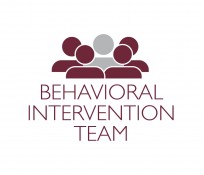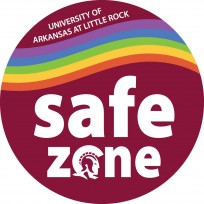Mission
The mission of the Military Student Success Center is to help military students (Veterans, Active Duty, Guard, Reserve, and Dependents) reach their educational and career goals. We do this by helping them receive their educational benefits (Tuition Assistance or VA); acting as a liaison; assisting with college navigation; and achieving *academic success.
Summary Narrative
1) Enhance recruitment and retention efforts to increase enrollment
- The Military Student Success Center was able to hire a Military Program Recruiter and Admissions Counselor. This position will benefit not only the center, but the institution. Having someone available to assist military students from the beginning of their journey to the end will help in retention and recruitment efforts.
- The MSSC has become more active on social media to engage the interest of not only current students, but future students.
- A review committee was put in place to ensure the Denman Brothers Scholarship for Military Veterans was awarded to the most deserving students. A video was created and shared on social media to recognize the winners of the Denman Brothers Scholarship for the academic year 2020-2021 to demonstrate what UA Little Rock has to offer to our veteran students.
2) Strengthen student-friendly operations and customer service
- A survey was sent out to our current military students and their dependents using benefits gathering their thoughts on the conduct of the office. The results were used to train staff and VA Work Studies and correct any issues that were consistent in the responses.
- A welcome and orientation video was placed on our website to allow students to meet the staff and see what the MSSC does.
- The staff of the center attended as many VA webinars as possible to enhance their skills and knowledge on VA benefits.
3) Improve diversity and inclusion efforts to provide a safe and inclusive environment for students
The Military Student Success Center and the Officer Candidate School hosted a campus clean up that included eStem students. This campus clean up was able to help provide a welcoming campus and build relationships with the high school and UA Little Rock students.
4) Align financial and human resources to operate more effectively and efficiently
- The Military Program Recruiter and Admissions Counselor position was added to the MSSC’s budget in order to increase military enrollment.
- The Assistant Director position was removed for FY21 due to the retrenchment.
- The printer lease was reviewed and renewed saving the MSSC money for FY21.
5) Promote student development, engagement, and leadership
- The Students Affected by Military leadership attended the Student Veteran Association conference to boost knowledge on resources available to veteran students and their dependents.
- The MSSC, Students Affected by Military, and Officer Candidate School teamed up to host the Trojan Warrior Games. The Trojan Warrior Games was an obstacle course that allowed people to challenge themselves and have a good time. Unfortunately, due to COVID-19 these games were cancelled and postponed until further notice.
- The MSSC participated in the Self Care Fair hosted by Counseling Services. The center held a push up challenge, awarding the top male and female with a prize.
- The MSSC hosted a Halloween party and costume contest for the students. Pizza and snacks were provided, along with a marathon of Halloween movies.
- The MSSC held a virtual run during COVID-19 to increase student engagement. Each participant was put into a drawing for a $25 gift card.
6) Other
- Chancellor Drale, Edie Stewart, and Kathy Oliverio were awarded the Patriot Award by the Employer Support of the Guard and Reserve to demonstrate the support they have for the Guard and Reserve employees within the university.
- The MSSC was able to convert to working remotely during the COVID-19 pandemic and remain available to assist all current and future students in any needs they had.
At A Glance
1,456 VA Enrollments were certified.
Over one million dollars in tuition was collected from Post 9/11 GI Bill Benefit.
Number of Military Students
- Fall 19 = 703
- Spring 20 = 678
- Summer 20 = 461
Military Graduates
- Fall 19 = 60
- Spring = 68
Assessment 1
Goal
Increase promotion of TRIO / Academic / Other grants and scholarships to military students.
Type of assessment (learning outcome or operational)
Student Learning: Practical Competence: Intrapersonal
Activity or experience being assessed
How will the promotion of TRIO/Academic/Other Grants and Scholarships to our military students help their knowledge of what is available to them?
Assessment artifacts
We will conduct a survey of our students to see if we have improved their knowledge of what benefits, including financial, are available. Ask questions about the efficacy of paper information vs. digital, which method of delivery is most effective.
Time period assessment was done
August 2019 – May 2020
Results
A final survey was not conducted due to the campus closing down for COVID-19. There were no final findings or results to report. The effort to disseminate knowledge of financial aid opportunities for our military students will continue into FY21.
Assessment 2
Goal
Determine efficacy of emailing students about to be dropped for non-payment
Type of assessment (learning outcome or operational)
Operational
Activity or experience being assessed
Would receiving an email notification that a student was on the drop/delete list for non-payment be a helpful tool in the student not being dropped?
Assessment artifacts
Survey to ask if our email was the determining factor in them not getting dropped; and what else could we be doing to help you not get dropped in the future
Time period assessment was done
February 2020
Results
A survey was sent out to 78 individuals that were on the first drop/delete list released. Out of the 78 students, only nine responded, which created a 11% response rate. 88.9% of the responses indicated that the email was a helpful tool to prevent the student from being dropped.
When asked what other tactics, several students responded that a phone call would also be helpful.
Continuous improvement process
The email that went out to the students was not common practice that had been taking place in the Military Student Success Office. Seeing that the email helped 88.9% of the students that responded, this will become a common practice of the Center.
Some of the students have requested a phone call to assist them as well. In the future, we will also begin calling students that are still on the list within a couple of days of the drop list.
WHEN: Fall 2020
Stateholder involvement / Communication plan
- Military Student Success Center Staff
- VA Work Studies
- Student Affairs Leadership
Assessment 3
Goal
Offer initial training/refresher training to Department Chairs, faculty, and staff on challenges faced by our military students. (VET 365)
Type of assessment (learning outcome or operational)
Student Learning: Knowledge acquisition / construction / integration and application
Activity or experience being assessed
How much learning will result from participants attending the ATLE presentation done by MSSC?
Assessment artifacts
A pre and post survey was the initial idea for the assessment; however due to time constraints only a post survey was given.
Time period assessment was done
November 2019
Results
A survey was sent out to the 13 attendees and 5 people responded, giving us a 38% return rate.
The survey results were as follows:
- On a 1 – 5 scale, with 1 being “Not at all” and 5 being “Couldn’t be clearer”:When asked if the information was clear and easy to understand, 60% selected 5, while 40% selected 4.
- On a 1 – 5 scale, with 1 being “Not at all” and 5 being “Absolutely”:When asked if they have a clearer understanding of our military student demographics, 80% selected 5, while 20% selected 4.When asked if they have a clearer understanding of the culture of our military students., 60% selected 5, while 40% selected 4.
- On a 1 – 5 scale, with 1 being “Not at all” and 5 being “Definitely”:When asked if 4 they would recommend all faculty/staff attend this training, 100% selected 5.
Some of the things participants said they learned during the ATLE briefing were:
“I learned the obstacles military students experience; I learned how to help them before issues occur (such as having policies within my syllabus); I learned about the military services groups that I was not readily aware of and included this information in my syllabus and Blackboard pages.”
“The biggest take away for me is that we (as a faculty) need to do more to have university-wide guidelines for students on leave/deployment. I also learned about what PTSD might look like along with demographics of military students.”
“Veterans face unique challenges to completing education because of rapid or frequent mobility. Veterans often have transcripts from multiple institutions and appreciate the extra effort advisors take to help them complete the degree in the most timely, effective way. Veterans respect good organization, communication, and teamwork and adult education assignments that relate to their work world.”
“I learned that I need to hear the information more than once. It was a fair amount of new information for me individually.”
When asked what we could do better in the presentation, some participants responded:
“More time for Q and A”
“Consider rearranging the room so that folks are in round table and ask them to do more interactive engagement”
Continuous improvement process
The results have given a lot of great input in the Military Student Success Center’s military awareness briefing (VET365). The briefing should be streamlined, so that all the information can be presented within a reasonable time frame, such as an hour. This time frame should also allow ample time for questions.
Next, more engaging activities should be added into the training. This will allow for a more interactive way of learning.
Because this training is deemed necessary by the faculty, the Military Student Success Center will work to hold the presentation more often.
WHEN: August 2020 – May 2021
Stateholder involvement / Communication plan
The Stakeholders include:
- Faculty
- Staff
- Military Student Success Staff
- Leadership
When the Military Student Success Center begins holding more of these trainings, each stakeholder will be in the line of communication.
Priorities for Next Year
- Follow through with changes in this annual report
- Promote scholarships, grants, and other financial opportunities to military students and their dependents
- Sending emails to any student on the drop/delete list and follow up with phone calls a few days prior to drop day
- Offer more briefings that increase faculty and staff military awareness on campus
- Improve diversity and inclusion by hosting at least 3 events centered on military history and culture.
- Create strategies to improve emotional well being for veteran students.
Improve awareness of UA Little Rock and interest in UA Little Rock to future military students.

